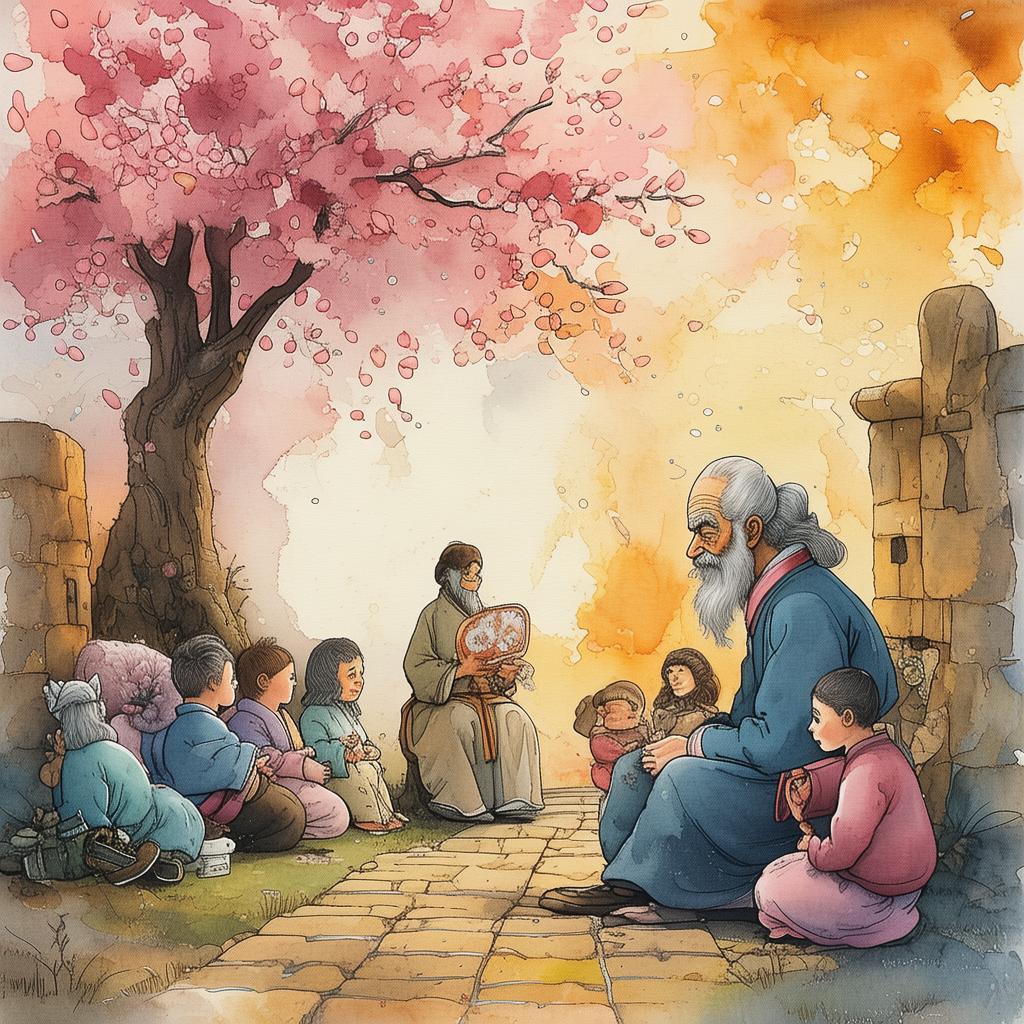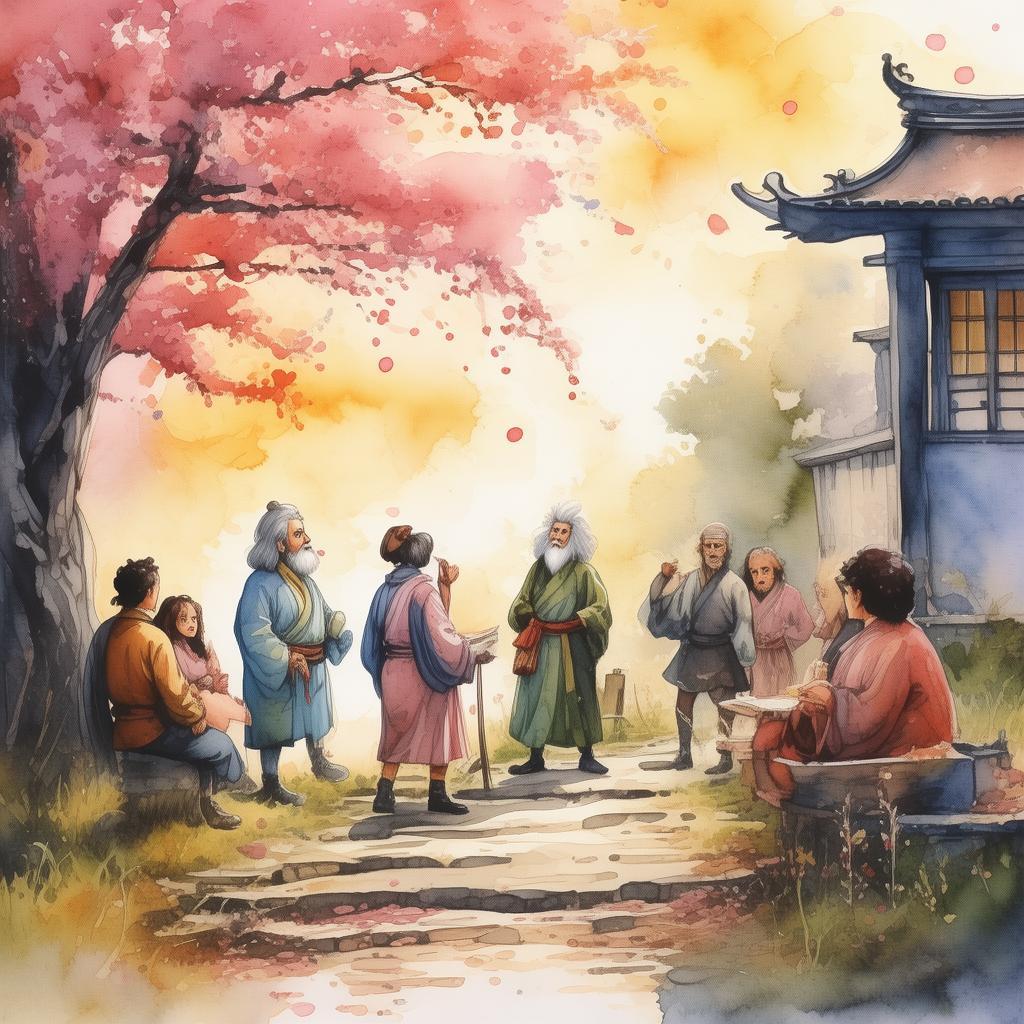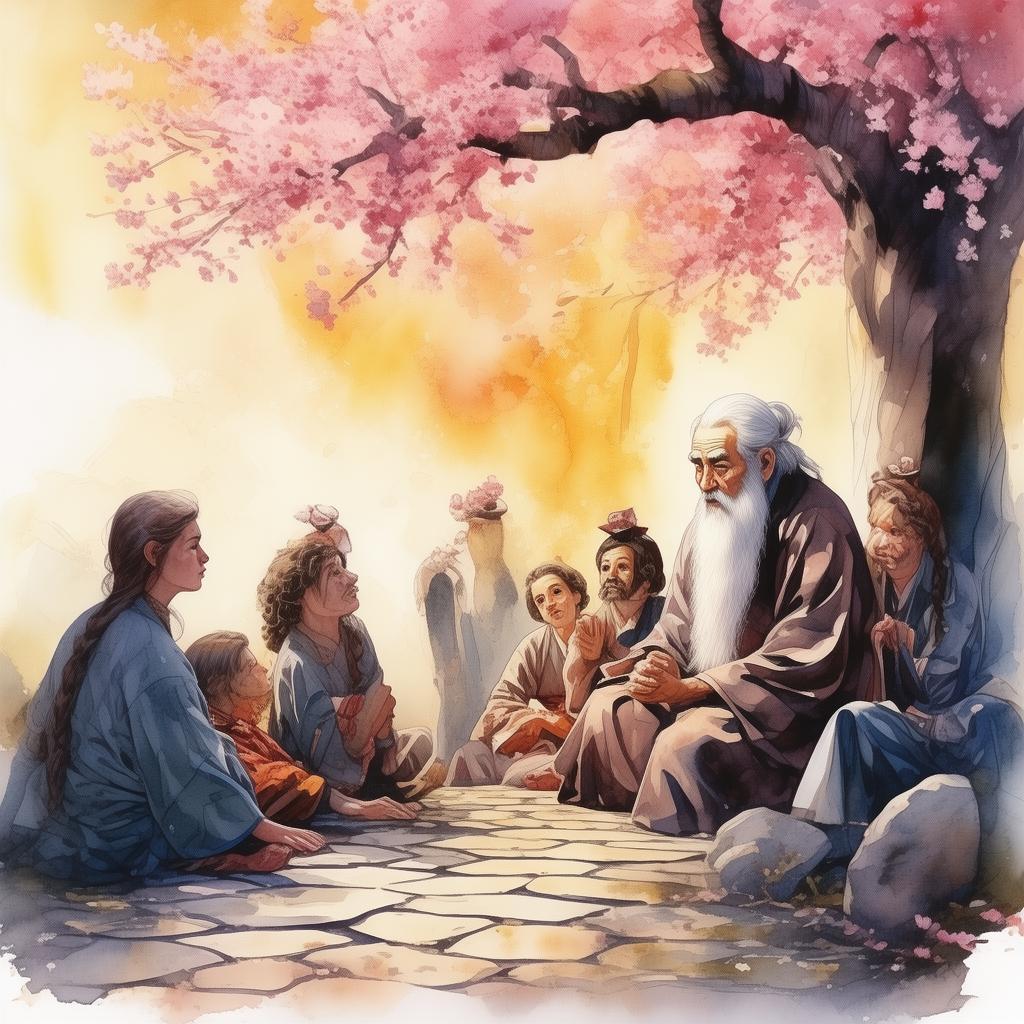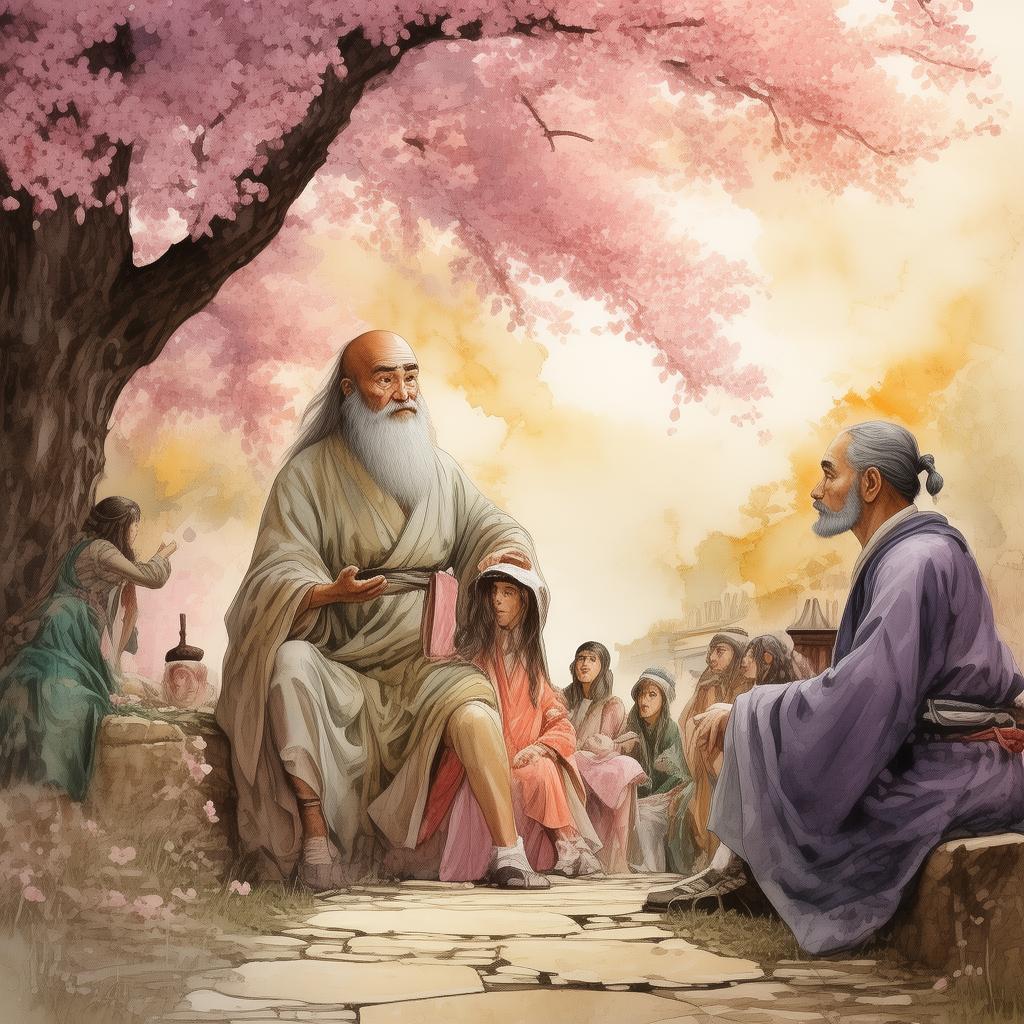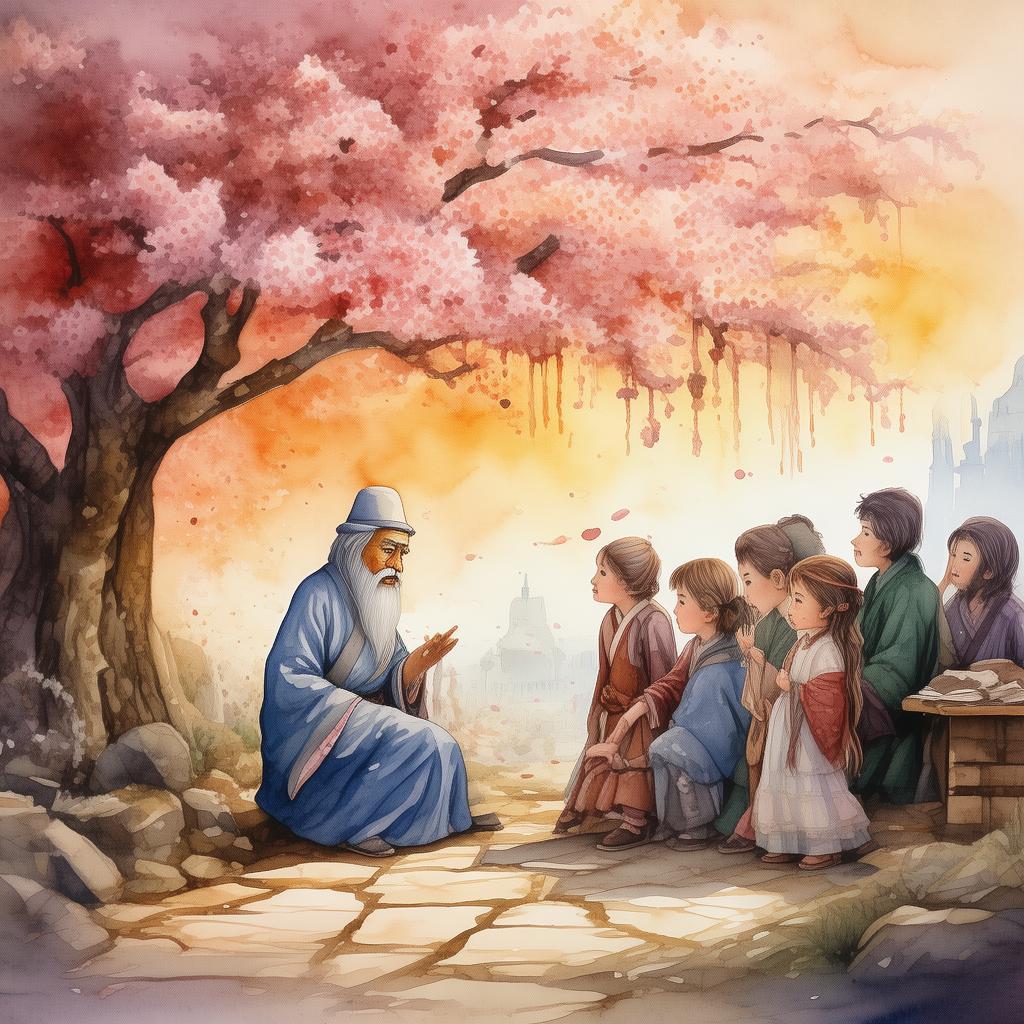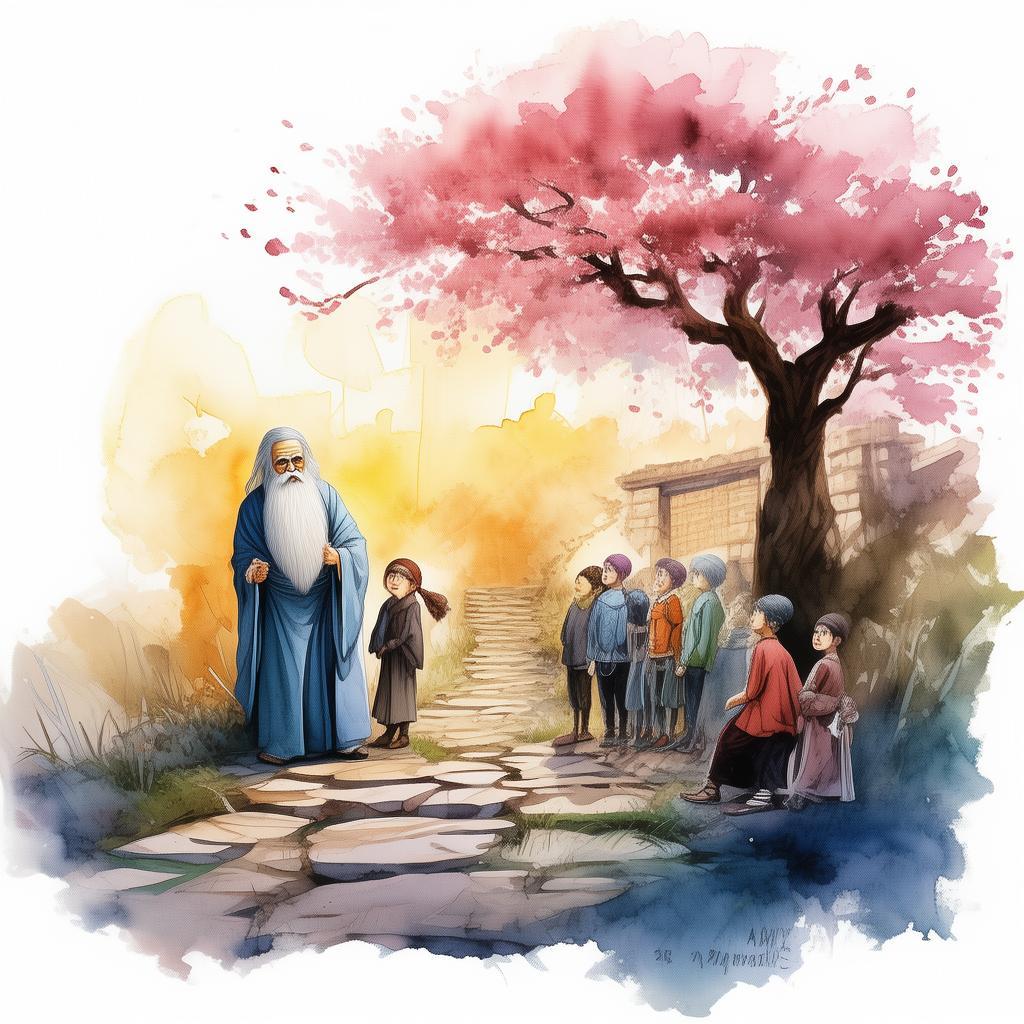The Scribe's Riddle: A Weaver's Dilemma
In the heart of ancient China, a scribe named Zhi was renowned for his mastery of words and proverbs. His talent was not merely in the weaving of stories but in the intricate tapestry of meanings that each proverb held. The empire's most esteemed scholars had sought him out, but none could unravel the complex riddles he posed.
One day, the Emperor summoned Zhi to the royal court. A mysterious figure, the Weave Master, had arrived with a proposition. The Weave Master was an enigmatic figure known throughout the land for her skill in intertwining threads and her ability to interpret the most cryptic proverbs. She presented Zhi with a challenge: to decipher a series of three ancient proverbs, each woven into a tapestry of woven silk. The Weave Master challenged not just Zhi's intellect but his very understanding of life and its truths.
The first proverb, "As the river winds, so the path winds," was the most perplexing. It seemed to suggest that the way of life was as unpredictable as the path of a river, ever-changing and shaped by its surroundings. Zhi spent days contemplating this, until he realized it spoke to the essence of adaptability.
The second proverb, "The wind carries no leaf but where the tree wills," intrigued him further. It implied that one's destiny is shaped by one's own will and actions, rather than by external forces. This thought resonated deeply with Zhi, as he believed in the power of the individual's resolve.
The final proverb, "In the silence of the storm, the voice of the tree speaks," was the most haunting. It seemed to hint at a hidden wisdom, one that could only be heard when all noise was subdued. Zhi pondered over this for days, until a whisper of an idea came to him, suggesting that true understanding was found not in the chaos but in the quiet.
With the proverbs now deciphered, the Weave Master revealed the true nature of her challenge. She had sought out Zhi, not merely to test his wit, but to discover a successor to her ancient art. The true purpose of the challenge was to find someone who could weave not just silk, but the very fabric of human understanding.
Zhi, humbled by the task and inspired by the proverbs, began to seek out those who were not traditionally regarded as scholars or weavers. Among his unlikely candidates was a humble tailor named Li, a girl named Mei who tended the emperor's garden, and an old fisherman named Feng.

Li, the tailor, was meticulous and precise in his work, a quality Zhi believed would serve well in unraveling the mysteries of the proverbs. Mei, with her keen eye for detail and her ability to nurture the delicate plants, represented the essence of patience and adaptability. Feng, the fisherman, was a master of observation and could predict the smallest of currents, qualities that could help in interpreting the subtleties of the proverbs.
As Zhi trained his new pupils, they faced a series of trials. Li was tasked with using the same silk threads to create a new tapestry, while Mei had to nurture a seemingly barren garden, and Feng was to fish in the most treacherous waters. Each pupil approached their tasks with their unique perspective, and Zhi guided them with the wisdom he had gleaned from the proverbs.
The day of the final trial arrived. The Weave Master, the Emperor, and all of court were gathered to witness the unveiling of the tapestries. Li presented a tapestry of endless loops and circles, symbolizing the unpredictable nature of life. Mei's garden, once barren, was now teeming with vibrant life, representing the resilience of the human spirit. Feng, with a calm and knowing expression, pulled a small, exquisite net from the water, containing a single, shimmering pearl, symbolizing the value of patience and quiet understanding.
The Weave Master smiled, her challenge successfully met. She declared that each pupil had woven a part of the human experience into their creations, and that the tapestries would become part of her legacy. Zhi, in awe of their achievements, knew that the true meaning of the proverbs was not just in the words, but in the lives and the actions of those who lived them.
And so, the Scribe's Riddle was solved not by one mind, but by many, each bringing their own unique perspective and understanding to the tapestry of life. The story of the Weave Master's challenge and the unlikely heroes who answered it became a legend, reminding all that wisdom could be found in the most unexpected places.
✨ Original Statement ✨
All articles published on this website (including but not limited to text, images, videos, and other content) are original or authorized for reposting and are protected by relevant laws. Without the explicit written permission of this website, no individual or organization may copy, modify, repost, or use the content for commercial purposes.
If you need to quote or cooperate, please contact this site for authorization. We reserve the right to pursue legal responsibility for any unauthorized use.
Hereby declared.




